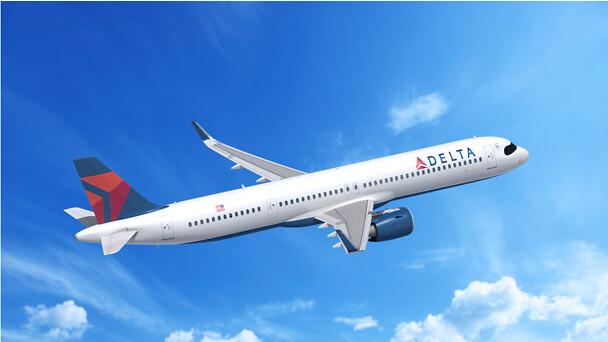Delta is the latest airline to join Airbus’ ZeroE programme
The manufacturer recently signed a Memorandum of Understanding with the US carrier to work on the development of hydrogen-powered commercial aircraft.
With fuel prices skyrocketing, now seems like as good a time as any to begin looking for alternative sources of energy. Hydrogen (as I have discussed many times) is currently shaping up to be one of, if not, the ‘fuel of the future’ for global transportation industries. Aviation has been taking this in stride, with numerous different initiatives such as Boeing and Etihad’s ‘Greenliner’, as well as Airbus’ ‘ZeroE’ hydrogen aircraft initiative. A recent development in the progression of Airbus’ hydrogen research involves the manufacturer partnering with US carrier Delta Airlines. Delta joins EasyJet, SAS Scandinavian Airlines, and Air New Zealand in this venture, with all carriers working in collaboration with Airbus to develop working hydrogen-powered aircraft.
“Hydrogen fuel is an exciting concept that has the potential to redefine the status quo. These tangible steps lay the groundwork for the next generation of aviation,” stated Pamela Fletcher, Chief Sustainability Officer at Delta.
These partnerships will see Airbus well on its way to having a fully functional fleet of hydrogen aircraft by 2035, in line with the goal they’ve set for the ZeroE programme. So why Delta? The answer to that lies, partly, in the airline’s own sustainability initiatives. Something I didn’t realise until recently was how committed the US carrier actually is to sustainability measures. Owing to this, it makes perfect sense for them to partner with Airbus on this project.
Back in 2020, the airline committed $1bn to mitigating emissions from its business and is attempting to become carbon neutral. What’s more, beyond standard offsetting, which relies on a global carbon market (and is an inherently flawed measure as I describe in Green Flying Part 2), Delta has pledged to minimise any reliance on said global market. On top of this, Delta joined LEAF last year, a public-private initiative dedicated to conserving global tropical forests by raising $1bn to fund their efforts, adding to Delta’s already extensive conservation efforts (which involves investing in ‘negative emission technologies’ – such as planting new forests). Clearly a force for sustainable good, then. Delta’s involvement in Airbus’ ZeroE should come as no surprise to anyone in the know about their impressive sustainability checklist. The partnership will see Delta field testing new technologies developed by Airbus by integrating them into their fleet and operations. This will enable the manufacturer to gain a sense of compatibility and other in-flight details, like max range on their new hydrogen tech. That’s not all; Delta’s partnership will also see the airlines helping to evaluate the overall infrastructure needed to integrate new hydrogen tech into a wider aviation ecosystem, as well as advocating for a greener future with key stakeholders in the industry. All in all, Delta’s involvement in the project will undoubtedly give it another boost towards that 2035 goal.


0 Comments